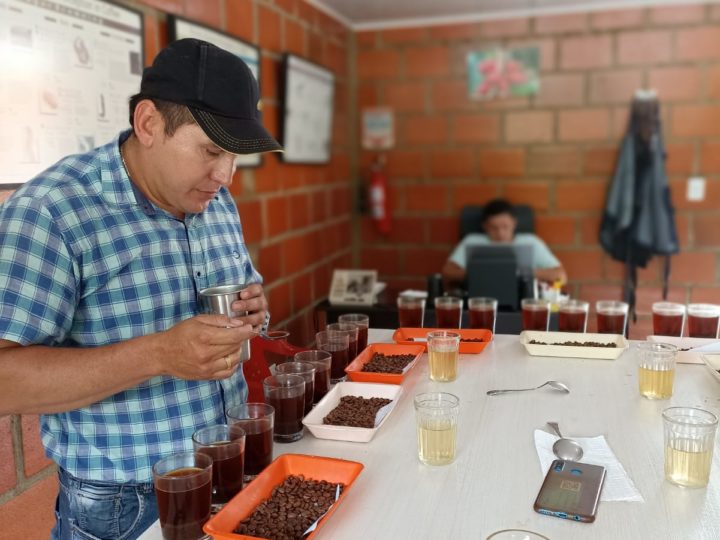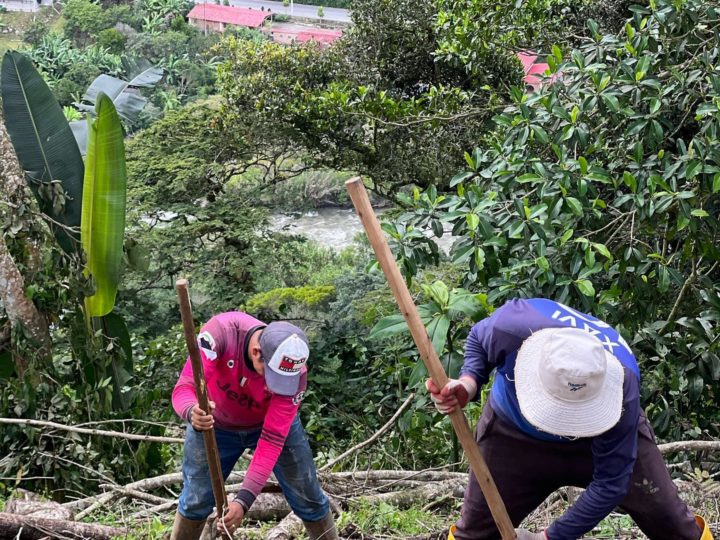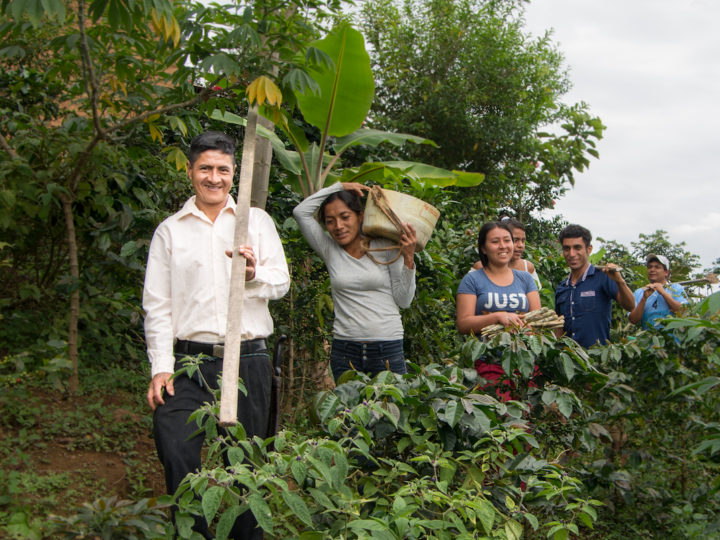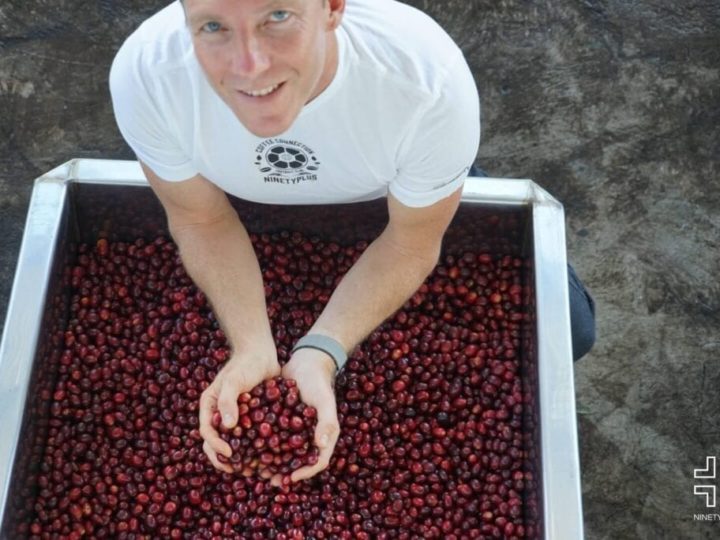Luis Anabel Bourbon Primitivo
This rare will continue the appreciation for Colombian coffees with a special variety, Bourbon Primitivo. This unique coffee is roasted and brought to us by Manhattan Coffee Roasters, from The Netherlands.
Farm: Finca Villa Betulia
Producer: Luis Anabel Calderon
Country: Colombia
Micro Region: Huila
Altitude: 1600 masl
Variety: Bourbon Primitivo
Processing: Anaerobic Natural
Expect notes of: Dr. Pepper, papaya, hot chocolate
Story of the variety
Story behind the variety starts in 2017, when Luis Anibal Calderón planted the Bourbon Primitivo variety at Finca Villa Betulia in Acevedo, Huila, Colombia. Discovering a distinct Bourbon tree, he decided to cultivate more trees from its seeds, naming the new variety Bourbon Primitivo to highlight its uniqueness and to separate it from regular Bourbon.
Primitivo coffee is celebrated for its exceptional flavour and complex aroma, attributed to the meticulous anaerobic natural fermentation technique used during processing. This method, involving oxygen-free fermentation in sealed tanks or grainpro bags, allows natural enzymes to break down sugars, creating unique aromatic and flavour compounds over a 40-hour period.
About the Farmer
Luis Anibal Calderón, a second-generation coffee grower from Acevedo, Huila, began working in the fields at age 12. By 40, he owned Villa Betulia, where he initially planted Castillo and Caturra. In 2012, he expanded to exotic varieties like Geisha, Wush Wush, Bourbon Rojo, and others. Today, Luis lives on the farm with his wife and three children, continuing the family tradition of producing high-quality coffee.
Deep dive into the Anaerobic Natural Fermentation Process for Primitivo
Primitivo coffee, grown at Finca Villa Betulia, Colombia, is renowned for its exceptional flavor and complex aroma. Part of its distinctive profile stems from the meticulous anaerobic natural fermentation technique employed in its processing. This method, which excludes oxygen during fermentation, promotes the development of unique and distinctive flavors.
Process Stages
Cherry Selection and Reception: Primitivo coffee cherries are carefully hand-selected, ensuring only the ripest and highest quality beans are used in the process. Upon arrival, they are thoroughly washed to remove any impurities.
Anaerobic Natural Fermentation: The beans are transferred to hermetically sealed tanks or grainpro bags, completely excluding oxygen. In this controlled environment, the beans’ natural enzymes break down sugars, producing unique aromatic and flavor compounds. Anaerobic natural fermentation for Primitivo Coffee takes place over a 40-hour period, depending on the ambient temperature and desired flavor profile.
Precise Monitoring and Control for Anaerobic Fermentation
The anaerobic natural fermentation process of Primitivo coffee demands rigorous monitoring and control to ensure uniform and controlled fermentation, preserving the coffee’s exceptional quality. At this crucial stage, a meticulous approach is implemented, involving the precise measurement of coffee temperature and pH.
Temperature:
The optimal temperature for Primitivo coffee’s anaerobic natural fermentation lies between 20°C and 25°C (68°F to 77°F). This temperature range allows the coffee’s natural enzymes to work efficiently, breaking down sugars and producing the desired aromatic and flavor compounds. A precise temperature control system is employed to maintain the temperature within the target range, adjusting it as needed.
pH:
The pH of the coffee during anaerobic natural fermentation is closely monitored to ensure a suitable acidic environment. The ideal pH range falls between 5.5 and 6.0. A pH that is too low can lead to bitter and unpleasant flavors, while a pH that is too high can inhibit enzymatic activity and flavor production. Precise digital pH meters are used to regularly measure the coffee’s pH, making adjustments to the fermentation if necessary.
Drying: Once fermentation is complete, the beans are removed from the tanks and spread out on raised beds for drying. Drying occurs naturally, under sunlight and natural ventilation, over a period of 15 to 20 days. Coffee moisture is carefully monitored during drying, ensuring it dries evenly and unhurriedly to preserve its organoleptic characteristics.
Comments (0)
Leave a reply
You must be logged in to post a comment.




